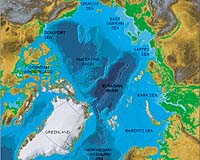| . |  |
. |
Austin TX (SPX) Jun 09, 2009 1st Detect Corporation has announced it is the recipient of a Phase I award from the U.S. Army's Chemical and Biological Defense (CBD) Small Business Innovation Research (SBIR) Program. The award will go to the development of a novel sample inlet system to significantly improve the sensitivity of mass spectrometers. "1st Detect is proud to receive this SBIR award from the U.S. Army as it clearly demonstrates the successful commercial transition of a space based technology," commented John Porter, chief executive officer for the Company. The Chemical and Biological Defense Small Business Innovation Research Program was created to develop and transition innovative CBD technologies between the Department of Defense and the private sector for mutual benefit. The program targets those technology efforts that maximize a strong defensive posture in a biological or chemical environment using passive and active means as deterrents. "The development of this new technology will greatly enhance the military's ability to detect chemical threats by increasing the sensitivity of mass spectrometers by orders of magnitude," added David Rafferty, president and chief technology officer for 1st Detect. With this grant, 1st Detect will build on its existing technology to develop a sample inlet system that will improve the ability to detect chemicals using a mass spectrometer. Upon meeting certain milestones and establishing project feasibility, the work may lead to a Phase II SBIR project to develop a prototype. Share This Article With Planet Earth
Related Links 1st Detect The latest in Military Technology for the 21st century at SpaceWar.com
 Defense Focus: Land war threats -- Part 4
Defense Focus: Land war threats -- Part 4Washington (UPI) Jun 8, 2009 People around the world understandably anxiously watch the Middle East for fear that new wars may break out in the region for control of its huge oil resources -- still the richest, most high quality and most easily accessible on the planet. Almost nobody pays any attention to the emergence of a similar situation in the Arctic Ocean: Yet international tensions are slowly but remorselessly ... read more |
|
| The content herein, unless otherwise known to be public domain, are Copyright 1995-2009 - SpaceDaily. AFP and UPI Wire Stories are copyright Agence France-Presse and United Press International. ESA Portal Reports are copyright European Space Agency. All NASA sourced material is public domain. Additional copyrights may apply in whole or part to other bona fide parties. Advertising does not imply endorsement,agreement or approval of any opinions, statements or information provided by SpaceDaily on any Web page published or hosted by SpaceDaily. Privacy Statement |